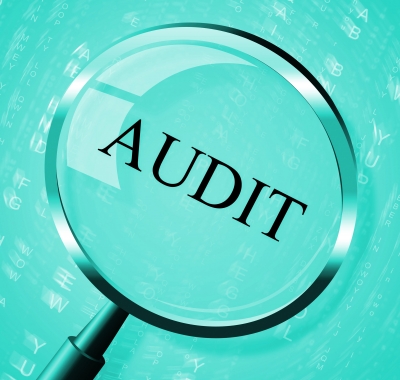The Philippine Bureau of Customs (BOC) has formally reactivated its Post Clearance Audit Group (PCAG) to scrutinize and validate the customs records of importers and customs brokers.
Customs Commissioner Isidro Lapeña on December 20 signed Customs Memorandum Order (CMO) No. 32-2017, which reactivates the PCAG, formerly known as Post Entry Audit Group (PEAG). The reactivation of PCAG is pursuant to Executive Order (EO) No. 46 series of 2017, which was signed by President Rodrigo Duterte on October 20, 2017, transferring back the post-clearance audit function to BOC from the Department of Finance (DOF) and renaming PEAG as PCAG. The group is to be headed by an assistant commissioner and directly supervised by the customs commissioner.
CMO 32-2017 took effect immediately.
READ: Duterte orders return of post-clearance audit to BOC
PEAG was created in 2003 under EO 160-2003 and tasked to perform the post-clearance audit work of BOC. In 2013, the functions of PEAG were transferred to the Fiscal Intelligence Unit, then a newly created office under DOF.
EO 46-2017 notes that the Customs Modernization and Tariff Act (CMTA) mandates BOC to “conduct audit examination, inspection, verification, and investigation of transaction records of importers and brokers.”
CMO 32-2017 states that PCAG shall be headed by an assistant commissioner appointed by the President upon recommendation of the customs commissioner through the secretary of finance. In November last year, Duterte signed the appointment paper of Ariel Nepomuceno, who will head PCAG as assistant commissioner. Nepomuceno was previously deputy commissioner of BOC’s Enforcement Group.
The assistant commissioner shall exercise direct supervision and control over the management of the operating units of PCAG, which include the Trade Information and Risk Analysis Office (TIRAO) and Compliance Assessment Office (CAO). TIRAO and CAO will each be headed by a director II, and will be supported by two and five divisions, respectively.
Personnel complement shall consist of those previously assigned to PEAG, and those identified by the customs commissioner, with the approval of the finance secretary.
The reactivated PCAG shall—within three years of date of final payment of duties and taxes or customs clearance—conduct an audit examination, inspection, verification, and investigation of records pertaining to any goods declaration, which shall include statements, declarations, documents, and electronically generated or machine-readable data. This is to ascertain the correctness of the goods declaration and determine the liability of the importer for duties, taxes, and other charges, including any fine or penalty.
Among TIRAO’s functions are to review available data to determine compliance markers of industry and set benchmarks for developing an audit program for approval by the customs commissioner; develop, in coordination with BOC’s Management Information System and Technology Group, a computer-aided risk-based management system for profiling and identifying potential priority audit candidates; and develop policies, guidelines, manuals, and standard operating procedures for the audit process.
CAO’s functions include the following: prepare the audit work plan, scope, and approach for the approved audit candidates; conduct audit examination, inspection, verification, or investigation of records; and establish and maintain a customs compliance program.
The funding required to reactivate and operate PCAG shall be sourced from the applicable budget as certified by the Financial Management Office, while the group’s logistical requirements shall be provided in coordination with the General Services Division, both under BOC’s Internal Administration Group.
Nepomuceno, in a phone interview with PortCalls, said PCAG is currently still in the organizing stage, but voiced hope the unit can start functioning by February at the latest.
He noted that the existence of PCAG has a deterrent effect as importers will be conscious when filling in their declarations that an audit unit can come after them.
While not its main function, PCAG, Nepomuceno said, can also contribute to revenue collection, mainly through the duties, taxes, and other charges, including any fine or penalty, that it can collect from importers with incorrect declarations.
Further, he noted that having a post-clearance audit function can facilitate trade because processing can be fast-tracked since customs can run after importers later.
Nepomuceno said PCAG will be conducting meetings and consultations with stakeholders about the reactivated unit’s functions and duties. – Roumina Pablo
Image courtesy of Stuart Miles at FreeDigitalPhotos.net









